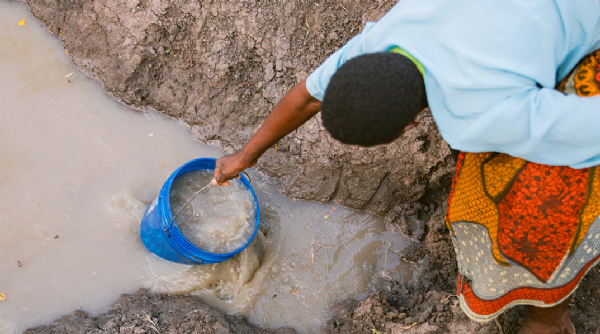More than quarter of world's population has no safe drinking water: UNESCO
"Water is our common future and it is essential to act together to share it equitably and manage it sustainably," Audrey Azoulay, UNESCO Director-General said
Total Views |
New Delhi, Mar 23: More than a quarter, 26 per cent of the world's population, comprising approximately 2 billion people, do not have safe drinking water and 3.6 billion or 46 per cent lack access to safely managed sanitation, according to the report, published by UNESCO on behalf of UN-Water released at the UN 2023 Water Conference in New York.

Between two and three billion people experience water shortages for at least one month per year, posing severe risks to livelihoods, notably through food security and access to electricity. The global urban population facing water scarcity is projected to double from 930 million in 2016 to 1.7-2.4 billion people in 2050. The growing incidence of extreme and prolonged droughts is also stressing ecosystems, with dire consequences for both plant and animal species, the United Nations Educational, Scientific and Cultural Organization (UNESCO) report said.
💧 Water is a basic #HumanRight. Never a luxury.
— UNESCO 🏛️ #Education #Sciences #Culture 🇺🇳 (@UNESCO) March 23, 2023
Yet, 2 billion people lack access to safe drinking water.
The latest @UN #WorldWaterReport shows how global cooperation can make a life-saving difference: https://t.co/wJ5mUrmxoh pic.twitter.com/7Vd14Tdfcs
"There is an urgent need to establish strong international mechanisms to prevent the global water crisis from spiralling out of control. Water is our common future and it is essential to act together to share it equitably and manage it sustainably," Audrey Azoulay, UNESCO Director-General said in a tweet. "There is much to do and time is not on our side. This report shows our ambition and we must now come together and accelerate action. This is our moment to make a difference," Gilbert F. Houngbo, Chair of UN-Water and Director-General of the International Labour Organization International cooperation said in a tweet.
Nearly every water-related intervention involves some kind of cooperation. Growing crops require shared irrigation systems among farmers. Providing safe and affordable water to cities and rural areas is only possible through communal management of water supply and sanitation systems. And cooperation between these urban and rural communities is essential to maintaining both food security and upholding farmer incomes, the report said. Managing rivers and aquifers crossing international borders makes matters all the more complex. While cooperation over transboundary basins and aquifers has been shown to deliver many benefits beyond water security, including opening additional diplomatic channels, only six of the world's 468 internationally shared aquifers are subject to a formal cooperative agreement.
--

